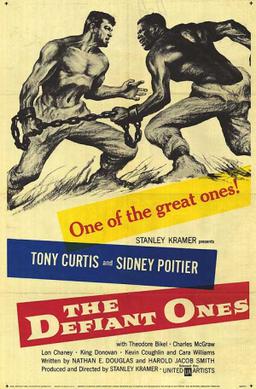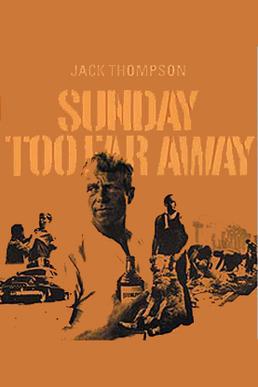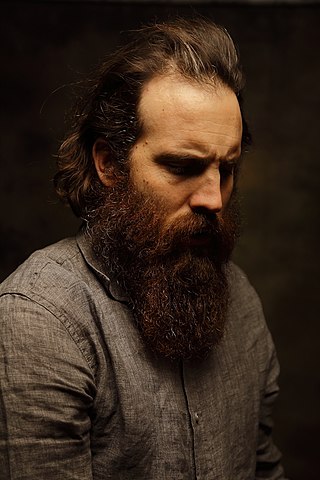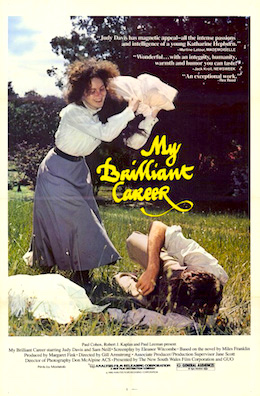
Errol Leslie Thomson Flynn was an Australian actor who achieved worldwide fame during the Golden Age of Hollywood. He was known for his romantic swashbuckler roles, frequent partnerships with Olivia de Havilland, and reputation for his womanising and hedonistic personal life. His most notable roles include Robin Hood in The Adventures of Robin Hood (1938), which was later named by the American Film Institute as the 18th greatest hero in American film history, the lead role in Captain Blood (1935), Major Geoffrey Vickers in The Charge of the Light Brigade (1936), and the hero in a number of Westerns such as Dodge City (1939), Santa Fe Trail, Virginia City, and San Antonio (1945).

The cinema of Australia began with the 1906 production of The Story of the Kelly Gang, arguably the world's first feature film. Since then, Australian crews have produced many films, a number of which have received international recognition. Many actors and filmmakers with international reputations started their careers in Australian films, and many of these have established lucrative careers in larger film-producing centres such as the United States.

The Defiant Ones is a 1958 American drama film which tells the story of two escaped prisoners, one white and one black, who are shackled together and who must co-operate in order to survive. It stars Tony Curtis and Sidney Poitier.

Judith Davis is an Australian actress. In a career spanning over four decades of both screen and stage, she has been commended for her versatility and regarded as one of the finest actresses of her generation. Frequent collaborator Woody Allen described her as "one of the most exciting actresses in the world". Davis has received numerous accolades, including nine AACTA Awards, three Primetime Emmy Awards, two BAFTA Awards, and two Golden Globe Awards, in addition to nominations for two Academy Awards.

The National Institute of Dramatic Art (NIDA) is an Australian educational institution for the performing arts based in Sydney, New South Wales. Founded in 1958, many of Australia's leading actors and directors trained at NIDA, including Cate Blanchett, Sarah Snook, Mel Gibson, Judy Davis and Baz Luhrmann.

Life is a 1999 American buddy comedy-drama film directed by Ted Demme. The film stars Eddie Murphy and Martin Lawrence. It is the second film featuring Murphy and Lawrence together, the first being Boomerang, in 1992. The supporting cast includes Ned Beatty, R. Lee Ermey, Obba Babatundé, Bernie Mac, Anthony Anderson, Miguel A. Núñez Jr., Bokeem Woodbine, Guy Torry, Michael Taliferro and Barry Shabaka Henley. The film is framed as a story being told by an elderly inmate about two of his friends, Ray (Murphy) and Claude (Lawrence), who are both wrongfully convicted of murder and sentenced to life in prison. It received an Oscar nomination for Best Makeup at the 72nd Academy Awards. Life failed to meet the studio's expectations at the box office, and received mixed reviews from critics. The film later found a strong cult following among Murphy and Lawrence’s fans, establishing Life as a cult classic.

Sunday Too Far Away is a 1975 Australian drama film directed by Ken Hannam. It belongs to the Australian Film Renaissance or the "Australian New Wave", which occurred during that decade.

Proof is a 1991 Australian romantic comedy-drama film written and directed by Jocelyn Moorhouse. The film stars Hugo Weaving, Geneviève Picot and Russell Crowe. The film was released in Australia on 15 August 1991. It was chosen as "Best Film" at the 1991 Australian Film Institute Awards, along with five other awards, including Moorhouse for Best Director, Weaving for Best Leading Actor, and Crowe for Best Supporting Actor.
Ken Quinnell is an Australia screenwriter and film director.
Michael Thornhill was a film producer, screenwriter, and director.

Colin Friels is a Scottish-born Australian actor of theatre, TV, film and presenter.
Wendy Hughes was an Australian actress known for her work in theatre, film and television. Her career spanned more than forty years and established her reputation as one of Australia's finest and most prolific actors. In her later career she acted in Happy New Year along with stars Peter Falk and Charles Durning. In 1993 she played Dr. Carol Blythe, M. E. in Homicide: Life on the Street. In the late 1990s, she starred in State Coroner and Paradise Road.

Thomas Michael Wright is an Australian actor, writer, film director and producer. He is the co-founder (2006) and director of theatre company Black Lung and director of the feature film Acute Misfortune (2019). As an actor he came to attention in Jane Campion's series Top of the Lake, for which he was nominated for Best Supporting Actor at the (US-Canadian) Critics' Choice Awards. He directed the thriller film The Stranger, which appeared at the 2022 Cannes Film Festival.
Dean Semler ACS ASC is an Australian cinematographer and film director. Over his career, he has worked as a cinematographer, camera operator, director, second unit director, and assistant director. He is a three-time recipient of the AACTA Award for Best Cinematography and an Academy Award winner. He is a member of both the Australian Cinematographers Society (ACS) and the American Society of Cinematographers (ASC). In 2002 he was appointed a Member of the Order of Australia (AM).

My Brilliant Career is a 1979 Australian period drama film directed by Gillian Armstrong, and starring Judy Davis, Sam Neill, and Wendy Hughes. Based on the 1901 novel of the same name by Miles Franklin, it follows a young woman in rural, late-19th-century Australia whose aspirations to become a writer are impeded first by her social circumstance, and later by a budding romance.
Cathy's Child is a 1979 Australian film, directed by Donald Crombie and starring Michele Fawdon, Alan Cassell and Bryan Brown.
The Place at the Coast is a 1987 Australian drama film directed by George Ogilvie and starring John Hargreaves. Given the working title "The Bee Eater", it was based on an unpublished novel by Jane Hyde, provisionally called "At Kilkee" but subsequently published with the same name as the film.
The 23rd Australian Film Institute Awards were held at the Regent Theatre, in Sydney, New South Wales on 16 September 1981. Presented by the Australian Film Institute (AFI), the awards celebrated the best in Australian feature film, documentary and short film productions of 1981. The ceremony was televised in Australia on ABC for the third year running, with John Bluthal presiding over the event.
The Sammy Awards were Australian television and film awards held annually between 1976 and 1981, initially supported by the TV Times and the Seven Network.











